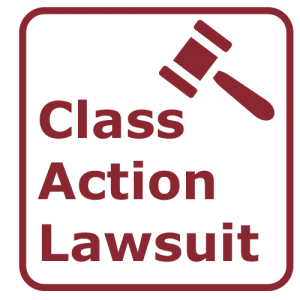Key Elements to Consider in Class Activity Legal Actions: Insights for Legal Representatives
Class activity legal actions can be complex and tough for attorneys to navigate. Recognizing these aspects and their effects is vital for attorneys aiming to efficiently represent their customers in course activity suits.
Class Certification Demands
To continue with a class action suit, lawyers should browse with a collection of rigorous course certification demands. Class certification is a vital stage in the lawsuits procedure that determines whether a team of complainants can be licensed as a class and wage their cases jointly. These requirements serve to make certain that course activities are appropriate and reliable mechanisms for fixing disagreements including numerous plaintiffs.
Among the key demands for class accreditation is numerosity. This requirement requires that the course be so various that joinder of all members is impracticable. While there is no set numerical limit, courts normally think about a course with greater than 40 members as completely various. Furthermore, commonality is an additional important consider course qualification. It requires that there are questions of legislation or fact common to the course, which need to predominate over private problems.
Competence of representation makes sure that the agents will rather and sufficiently safeguard the interests of the class participants. A course activity need to additionally satisfy the demand of superiority, implying that a class activity is an exceptional technique for settling the disagreement contrasted to other offered techniques.
Navigating through these class certification requirements can be complicated and tough for legal representatives. Understanding and meeting these requirements are essential to effectively go after a class activity suit on part of a group of plaintiffs.

Commonness of Insurance Claims
The following essential factor to consider in the course qualification procedure is the commonality of insurance claims among the complainants. Commonality refers to whether the course members share similar lawful problems and inquiries of fact that can be resolved jointly. Simply put, it is needed to determine if there prevail inquiries of law or reality that are main to the lawsuits and that predominate over any kind of private issues.
To establish commonality, the plaintiffs should show that there are accurate or lawful problems that prevail to the entire course. This can be accomplished by identifying an usual course of conduct or a typical legal theory that underlies the claims (Class action lawsuit). The visibility of common inquiries is very important because it advertises judicial efficiency and economic climate by permitting a single choice to settle the problems for the whole class
However, it is crucial to note that the commonality need does not demand that all the private insurance claims be identical. Differences in problems or specific scenarios do not necessarily beat commonness if there are still typical inquiries that bind the course together.

Damages Estimations
One important facet to think about when calculating problems in class action legal actions is the exact evaluation of monetary losses incurred by the class members. In order to determine the ideal amount of payment, it is essential to assess the degree of injury suffered by each person within the course. This can be a complex job, as it calls for a thorough evaluation of numerous factors, such as the nature and period of the damage, the financial influence on the influenced people, and any kind of other appropriate factors to consider.
When evaluating financial losses, it is necessary to consider both the direct and indirect damages endured by the course members. Direct problems refer to the actual out-of-pocket expenditures incurred as a result of the accused's activities. These might consist of medical bills, property damages prices, or any kind of various other tangible financial losses. On the various other hand, indirect problems include the abstract losses that are more hard to quantify, such as emotional distress, loss of reputation, or lessened lifestyle.
To determine damages properly, attorneys should collect detailed evidence, including financial records, professional opinions, and testaments from the course participants. They might additionally require to engage financial and economic specialists that can offer insights into the long-lasting financial ramifications of the injury experienced.
Settlement Negotiations
During negotiation arrangements, lawyers need to participate in careful and strategic conversations to reach a mutually additional hints acceptable resolution for all parties entailed in the class action claim (Class action lawsuit). Settlement settlements are a vital phase in the litigation process, where the celebrations try to get to a compromise without going to trial. These negotiations need lawyers to use their settlement abilities, legal know-how, and understanding of the case's weak points and strengths
One important factor to consider throughout negotiation negotiations is the potential dangers and costs connected with proceeding to trial. Lawyers have to carefully evaluate the probability of success at trial and evaluate it versus the prospective advantages of a negotiation. They need to also consider the possible time and resources that would certainly be needed to go via a test, in addition to the prospective adverse publicity that can result from a public trial.
Another crucial element is the interests and problems of the class members. Lawyers require to recognize what the class participants hope to attain through the suit and how a negotiation can resolve their complaints. By considering the course members' viewpoints and talking to them throughout the arrangement process, attorneys can better promote for their passions and make sure that any kind of settlement gotten to is reasonable and adequate.
Moreover, attorneys must be prepared to discuss with the opposing event and their legal agents. This calls for a deep understanding of the strengths and weaknesses of both sides' arguments and a determination to compromise. Skilled negotiators can leverage this knowledge to locate typical ground and craft innovative services that meet the requirements of all events involved.
Efficient Customer Representation
To successfully represent their clients in class activity lawsuits, legal representatives must possess a detailed understanding of the situation and faithfully supporter for their clients' rate of interests. Efficient customer depiction calls for attorneys to develop open lines of communication and maintain a strong attorney-client connection throughout the whole litigation process.
First and foremost, legal representatives have to completely examine the facts, lawful concerns, and possible dangers connected with the case. This consists of carrying out a thorough examination, examining relevant records, and consulting with experts if needed. By gaining a deep understanding of the situation, attorneys can develop a critical approach customized to their clients' purposes and requirements.
Additionally, lawyers have to proactively support for their clients' passions throughout all stages of the suit. This involves composing influential lawful debates, carrying out extensive research study, and providing engaging evidence to support their address clients' claims. Attorneys need to additionally stay informed about recent growths in course activity law and use this understanding to strengthen their customers' placements.
Along with lawful campaigning for, effective client representation involves supplying regular updates, addressing concerns, and addressing any concerns that customers might have. Legal representatives need to be aggressive in keeping their clients notified about the development of the instance and any type of considerable growths that may influence the result.
Inevitably, efficient client representation requires attorneys to be thorough, receptive, and committed to securing their clients' passions and rights. By adopting a client-centered strategy, lawyers can make the most of the opportunities of achieving a beneficial end result in class action lawsuits.
Final Thought
Finally, lawyers included in class activity suits need to consider essential factors such as class accreditation demands, the commonness of cases, damages estimations, settlement negotiations, and effective customer depiction. By carefully resolving these factors, legal representatives can improve their opportunities of success in class action claims and guarantee that the rate of interests of their customers are shielded.
Understanding these factors and their ramifications is critical for legal representatives aiming to successfully represent their customers in course action claims.To proceed with a course activity lawsuit, legal representatives must browse through a series of stringent class certification requirements. Class certification is a critical phase in the lawsuits process that figures out whether a team of complainants can be certified as a course and proceed with their cases collectively. A course activity should also please the need of prevalence, suggesting that a course activity is an exceptional approach for settling the conflict compared to other readily available methods.
One essential facet to consider when computing problems in course activity claims is the precise analysis Continued of monetary losses incurred by the class participants.